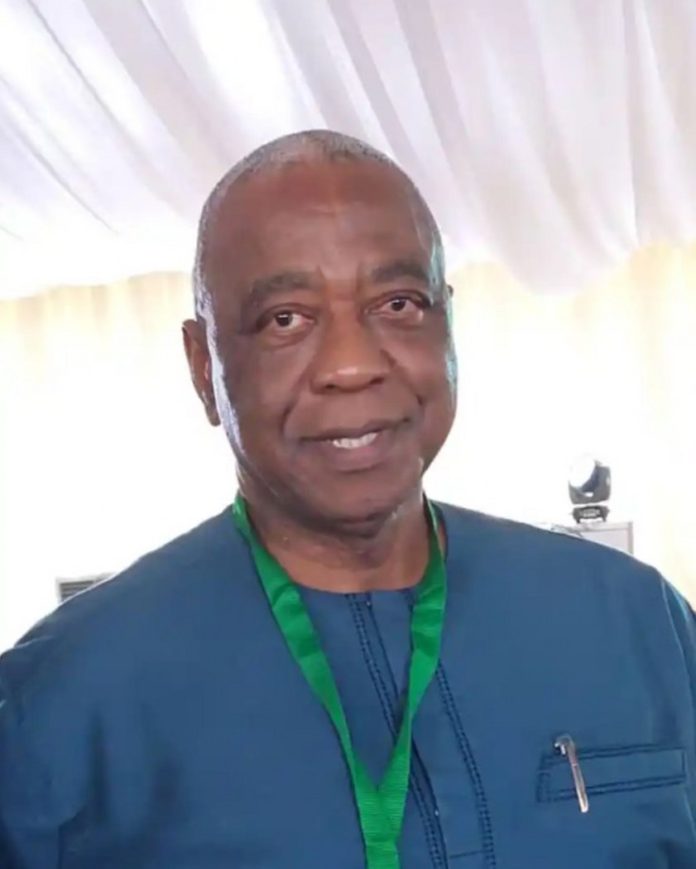A former National Security Advisor to John Dramani Mahama, Alhaji Baba Kamara, has been appointed the deputy head of a 250–member ECOWAS elections observer mission to Nigeria.
The delegation will be there from the 22nd to the 28th of February 2023 to observe the electoral processes before, during and after.
The delegation is being headed by former President of Sierra Leone, H.E. Ernest Bai Koroma.
Alhaji Kamara’s appointment follows an invitation from the President of the ECOWAS commission.
He was Ghana’s High Commissioner to Nigeria and Permanent Representative to ECOWAS during the tenure of late former President John Evans Atta Mills.
The Chief Executive Officer (CEO) of the Atta Mills institute, Samuel Koku Anyidoho, is also in Lagos Nigeria as a member of the elections observer’s mission.
Many International Observers are in Nigeria alongside ECOWAS – including the African Union and the European Union with local civil society groups also being accredited by the INEC.
The Nigerian election is being contested by 18 political parties duly reserved with the Independent National Electoral Commission (INEC), of Nigeria, with four major ones being visibly dominant – the ruling All-Progressive Congress (APC), the People’s Democratic Party (PDP), the Labour Party (LP), and the New Nigerian People’s Party (NNPP).
In all, some 95 million Nigerians have registered with the independent national electoral commission to take part in the voting where expectations are very high amidst a change of the naira, which has caused a shortage of the local currency.
The upcoming general election in Nigeria has further exposed the extent to which its democratic institutions are fragile.
As one of the largest counties on the continent, Nigeria for many years has had a checkered political history laced with military interventions some of which have been very brutal particularly the era under the late Sani Abacha.
The issues that have largely dominated the current politicking in Nigeria include but not limited to activities of extremist groups like Boko Haram, conflicts, marginalization and exclusion, especially in the northern sections, a rise in political and criminal violence, loss of control of borders, rising ethnic, religious, and cultural hostilities, weak institutions, food shortages and unemployment coupled with high level governmental and political corruption.
These challenging life-threatening realities make the 2023 general election a defining moment for the country which in turn make it imperative that Nigerians will elect a person who is bred out from the old corrupt institutionalized establishment to replace Buhari as president.
The candidate who gets elected as President must show a clear-cut appreciation of all the issues confronting the country and have a well-mapped strategy to save this sleeping African giant of a country such as Nigeria.
Nigerians have followed the campaign messages and manifestoes and therefore are expected to make informed decisions as to who better must lead the country in the next four years.
The piece is intended to expose and open the eyes of those who continue to view Nigeria as a country with many failed possibilities rather than a new awakening that, this African giant has all it takes to change the course of social, economic and political development on the continent for the next decade.
ALSO READ:
Nigeria elections 2023: How influencers are secretly paid by political parties
Nigerian election: Universities to be closed down
The critical nature of the upcoming general election also is what may have informed the choices of those who must be deployed as observers of the elections in that country because they better understand the African narrative than those who have tended to look at the bad of the continent all the time.
Within the international space every step must be taken especially moderating voices to ensure Nigeria sails through this election with as little difficulty as possible because, in the global space, Nigeria can’t remain silent anymore.
International relations allow nations to cooperate with one another, pool resources, and share information as a way to face global issues that go beyond any particular country or region.

